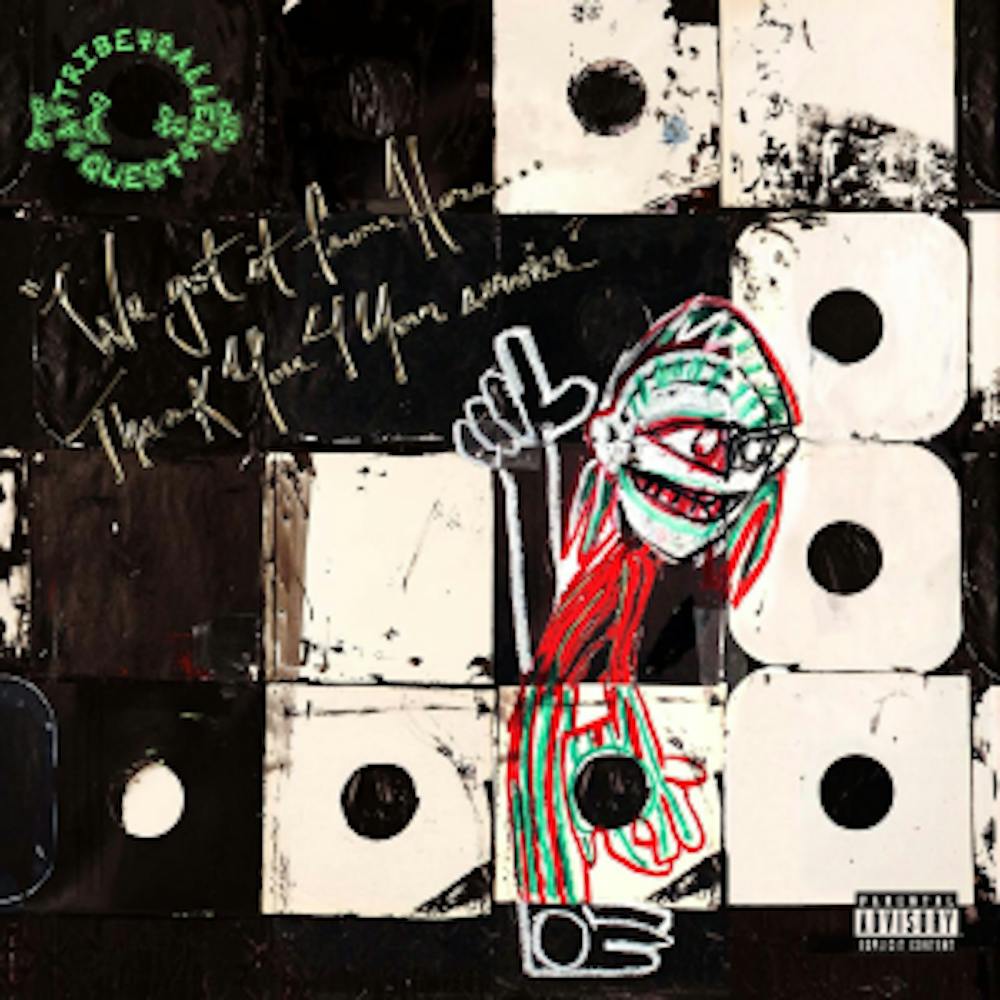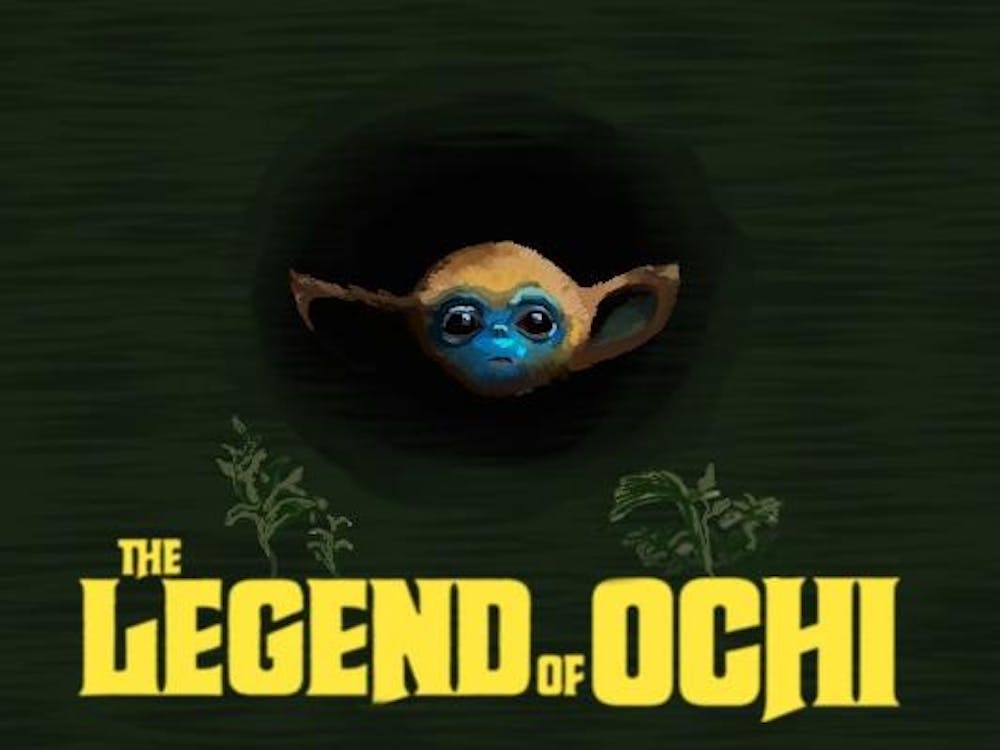Despite being the group’s first album in nearly two decades, A Tribe Called Quest’s “We got it from Here… Thank You 4 Your service” feels remarkably current. Q-Tip, Shaheed, Phife Dawg and Jarobi capture the wild state of the world with wit and accuracy. The group’s final studio album couldn’t have come at a better time, offering a needed breath of fresh air from both the current atmosphere of the country and the state of hip-hop in 2016.
The project is a distinctly collaborative effort, featuring Busta Rhymes, Consequence, André 3000, Jack White and others. The star-studded album was recorded entirely at Q-Tip’s home studio.
The record glows with Tribe’s classic, uplifting and thoughtful message. “Gotta get it together forever / Gotta get it together for brothers / Gotta get it together for sisters,” Q-Tip and Phife rap together to start the album. With beautiful pace, “We got it from Here… Thank You 4 Your service” stays true to the group’s classic sound while still embracing their defining experimental spirit. Tribe continues to fuse hip-hop’s staple boom-bap sound with their one-of-a-kind funky weirdness. Both discs are entirely self-produced, yet each track sounds fresh and innovative, with influences oozing of funk, rock and psychedelic jazz.
“We got it from Here… Thank You 4 Your service” is by no means pure bliss, however. There isn’t a song which doesn’t either mourn or embrace the recent passing of Phife Dawg, one of Tribe’s three founding members. Symbolic, esoteric lyricism combines with the group’s characteristic rhythmic sound to give the album a nearly spiritual flavor, as if these artists are speaking to their deeply missed friend.
As a whole, the album is a tribute to the legacy and influence of Phife and of the group itself. “Phife Dawg, what a go on with crew? / Nuff ting, that’s why me had to come through / Phife Dawg, you spit wicked every verse / Them no say, respect the Trini man first,” raps Busta Rhymes, who did his part in filling the space left by Phife throughout the album. It’s a bromance which will tug at the heart-strings of any hip-hop head.
In addition to the personal notes, the album strikes comes across as positive and empowering in an era of hip-hop embracing much darker influences. The project discusses issues of race, violence and politics much like its contemporary counterparts — albums like Kendrick Lamar’s “To Pimp a Butterfly” and Common’s “Black America Again” — but does so with the Tribe’s beloved, optimistic, empowering tone. This breath of positivity is much appreciated in the midst of a confusing time for American society.
On the standout track “We The People…,” Q-Tip raps, “We don’t believe you ‘cause we the people / Are still in the rear, ayo, we don’t need you.” Q-Tip expresses his discontent with the state of the black man in 2016, reminding his listeners “we’re all in this together.” It’s an uncompromising and critical, yet positive, message.
On “Conrad Tokyo,” Phife Dawg gets political alongside Kendrick Lamar: “Rather watch the Nixon shit than politicians politic / CNN and all this shit / Gone on now, move with the f---ery / Trump and SNL hilarity / Troublesome times kid, no times for comedy.” Lines like these are a mark of Tribe’s valuable wisdom, pointing out society’s complacency in recent events.
The politically conscious album fits perfectly into Tribe’s legacy. The final track, “The Donald,” couldn’t be a more fitting conclusion to Tribe’s last work. The title is not, as one might assume, a reference to the president-elect, but rather a final tribute to the late Phife Dawg, who was nicknamed “Don Juice,” and who was the only “Donald” deserving of a tribute from Tribe. Once again, and once and for all, A Tribe Called Quest has made something special.







